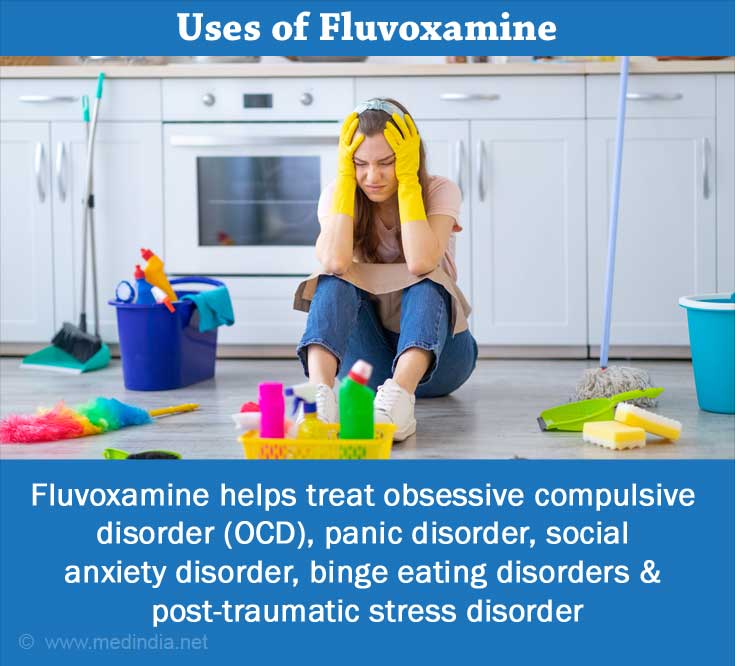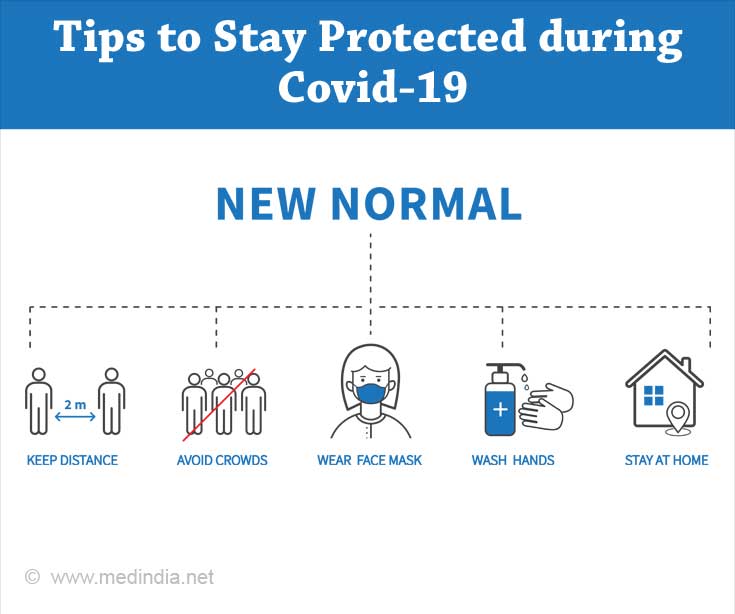- Fluvoxamine vs Placebo and Clinical Deterioration in Outpatients With Symptomatic COVID-19 - (https://jamanetwork.com/journals/jama/fullarticle/2773108)
- Prospective Cohort of Fluvoxamine for Early Treatment of Coronavirus Disease 19 - (https://academic.oup.com/ofid/article/8/2/ofab050/6124100)
- OCD drug spotlighted as potential COVID-19 treatment - (https://www.cidrap.umn.edu/news-perspective/2021/04/ocd-drug-spotlighted-potential-covid-19-treatment)
- What Is Fluvoxamine? OCD Drug Could Be Used to Treat COVID - (https://www.newsweek.com/covid-treatment-fluvoxamine-explained-disease-clinical-trials-1574467)
Dozens of COVID patients showed no deterioration in their symptoms when treated with a drug, fluvoxamine, as per a study at the School of Medicine's Department of Psychiatry, published in The Journal of the American Medical Association.
The outbreak of Coronavirus disease 2019 (COVID-19) has led patients to succumb to serious illnesses and is growing even worse as its second wave takes a toll in India. Several drugs have been under trials for repurposing them against the deadly COVID-19.
Fluvoxamine has been proven among one such drug that could be used to treat COVID-19 by regulating cytokine production and thereby preventing clinical deterioration.
What is Fluvoxamine?
Fluvoxamine is an anti-depressant medication that is conventionally used to treat obsessive-compulsive disorder (OCD). Pharmacologically, it falls under the category of "selective serotonin reuptake inhibitor (SSRI)", that is, the drug alters the way by which chemicals in the human brain - neurotransmitters communicate.
Neurotransmitters are chemical messengers in the brain that helps the neurons (brain cells) to communicate with each other. Imbalance/changes in these chemicals are stated to result in psychiatric disorders such as depression
Fluvoxamine is a well-tolerated drug and was approved for OCD treatment in 1994 by the Food and Drug Administration (FDA). It has also been used to treat other mental health problems like social anxiety, post-traumatic stress, post-traumatic stress and pathological gambling

Fluvoxamine - Pharmacological Mechanism in COVID-19
The worsening of clinical
Studies propose that Fluvoxamine could prevent COVID symptoms from progressing to the point of requiring hospitalization by stimulating the σ-1 receptor (regulates cytokine production). Thus, the drug has emerged as a suitable candidate for early treatment of the COVID-19 disease.
Based on its assuring result, the drug is also speculated to be useful for treating people with severe symptoms of COVID-19 thereby preventing further clinical deterioration.
Trials Establishing the Efficacy of Fluvoxamine
The two-week randomized clinical trial study led by Eric Lenze of the School of Medicine's Department of Psychiatry included 152 adult outpatients with confirmed COVID-19 and symptom onset within 7 days.
Among them, 115 people in total completed the trial of Fluvoxamine. Clinical deterioration occurred in none of 80 patients in the fluvoxamine group and six of 72 (8.3%) patients in the placebo group.
One serious adverse event and 11 other adverse events were noted in the fluvoxamine group. The placebo group had six serious adverse events and 12 other adverse events.
Overall, it was found that 20% of the participants had clinical deterioration in the placebo group, whereas a reduction of 75% was observed in the risk of clinical deterioration in the fluvoxamine group. The study thereby revealed the efficacy of fluvoxamine in treating COVID-19.
Following the results, another trial (65 people took fluvoxamine and 48 declined) at the University of Minnesota Medical School, published in the Open Forum Infectious Diseases journal revealed that none of the 65 people with fluvoxamine had residual COVID-19 symptoms when compared to 29 of the 48 people who did not take the drug.
Fluvoxamine, as a Treatment for COVID-19
The studies thereby claim that Fluvoxamine appears to be promising as an early treatment for COVID to prevent clinical deterioration requiring hospitalization. It is also effective in preventing possible long-haul symptoms persisting beyond 2 weeks. However larger trials are required to determine the further effectiveness of the drug.
"It's the FDA who will have the job of figuring out whether to give approval, for this use of that drug. And it will be about benefit and risk. And the benefit is maybe even a reduction of 20 percent of the chance that you're gonna end up in the hospital, that's probably a good thing. That should be added to the mix," says Dr. Francis Collins, director of the National Institutes of Health (NIH).
With the mounting benefits of Fluvoxamine against COVID-19, the demand for it may increase. However, it is not expected to cause drug shortages in the US market since there are at least five manufacturers in the United States who make the drug.
Tips to Stay Protected in COVID-19
Coping up with the enhanced endurance of the virus requires the following necessary precautions along with a boosted immune system:

- With spiking effects of the Coronavirus, the best way to keep it at bay is to follow COVID-appropriate safety practices like wearing a mask regularly cleaning your hands, and coughing into a bent elbow or tissue along with physical distancing (6 feet about 2 arm's length), that may help evade the severity of COVID-19 infection
- Avoid the crowd and keep away from gatherings
- Staying home as far as possible in properly ventilated spaces
- Seek medical advice at the earliest if any symptoms suspected of COVID-19
- Maintain a well-balanced healthy diet to boost up your immune system





